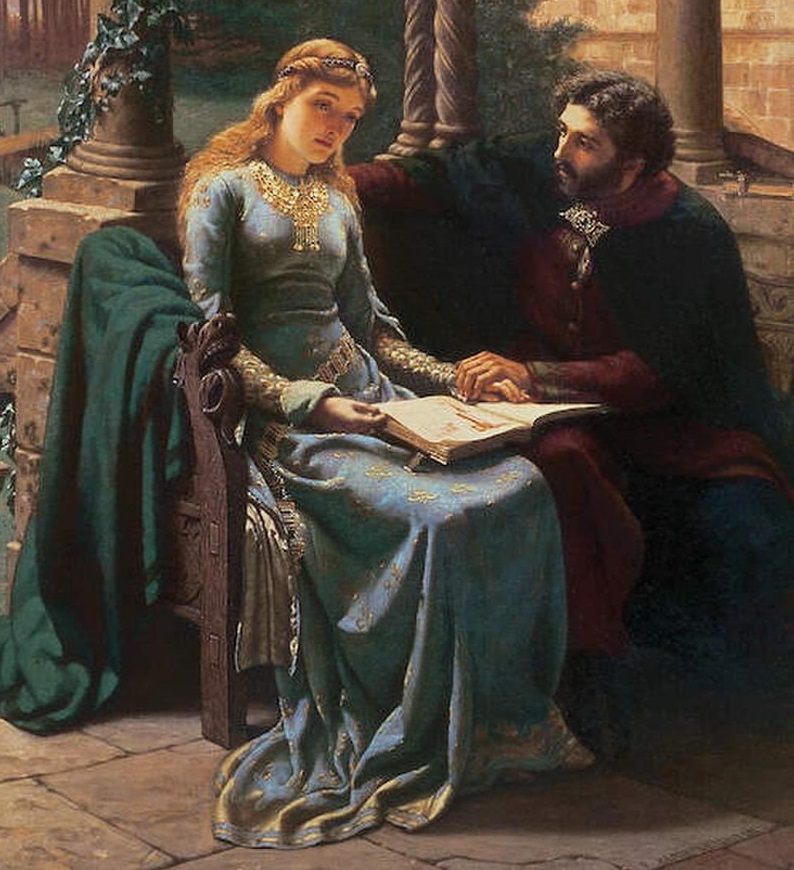Difference between revisions of "Abelard, Pierre (c.1079-1142)"
m |
Tao alexis (talk | contribs) |
||
| Line 1: | Line 1: | ||
[[File:Pierre Abelard & Heliose.jpg|right|525px|thumb|Pierre Abelard & Heliose]] | [[File:Pierre Abelard & Heliose.jpg|right|525px|thumb|Pierre Abelard & Heliose]] | ||
| − | '''Pierre Abélard''' was a French philosopher born in the village of Palet near Nantes. | + | '''Pierre Abélard''' was a French philosopher born in the village of Palet near Nantes. He studied dialectic under Roscelin of Compiègne and William of Champeaux, later becoming a brilliant and highly influential teacher, primarily in Paris. |
| − | After a tragic love affair with | + | After a tragic love affair with Héloïse, the niece of a canon of Notre Dame, he entered monastic life. His career was turbulent, marked by controversy and opposition, particularly from St. Bernard of Clairvaux, founder of the [[Abbey#Cistercian Abbeys|abbey]] there. Abélard faced ecclesiastical condemnation at Soissons (1121) and Sens (1141), and was ultimately excommunicated by the pope. Submitting to the Church's judgment, he retired to the Abbey of Cluny, where he died shortly after. |
| − | As a dialectician, Abélard | + | As a dialectician, Abélard challenged and rejected the dominant forms of realism of his time, particularly that of his teacher, William of Champeaux, whom he forced to modify and ultimately abandon his original views. Influenced by Roscelin's nominalism, he argued that universals — such as genera and species — are not things (''res'') but merely words (''voces''). |
| − | + | In his more developed view, universals are not just ''voces'', which are mere vocal utterances, but rather ''sermones'' — words assigned meaning through human convention. His philosophy, however, was not purely nominalist. He reintroduced the moderate realism of Boethius into medieval thought, foreshadowing the ideas of Thomas Aquinas. | |
| − | Abélard's | + | Abélard's ethical philosophy accentuated the role of intention in moral judgment. His most well-known works include the theological treatise ''Scito te ipsum'' and his autobiographical ''Historia Calamitatum'', both considered rare and significant texts. |
See [[Philosophers]] | See [[Philosophers]] | ||
| − | [[Category: Historical Persons]][[Category: Writers]] | + | [[Category: Historical Persons]][[Category: Writers]][[Category: Reviewed]] |
Revision as of 21:20, 11 February 2025
Pierre Abélard was a French philosopher born in the village of Palet near Nantes. He studied dialectic under Roscelin of Compiègne and William of Champeaux, later becoming a brilliant and highly influential teacher, primarily in Paris.
After a tragic love affair with Héloïse, the niece of a canon of Notre Dame, he entered monastic life. His career was turbulent, marked by controversy and opposition, particularly from St. Bernard of Clairvaux, founder of the abbey there. Abélard faced ecclesiastical condemnation at Soissons (1121) and Sens (1141), and was ultimately excommunicated by the pope. Submitting to the Church's judgment, he retired to the Abbey of Cluny, where he died shortly after.
As a dialectician, Abélard challenged and rejected the dominant forms of realism of his time, particularly that of his teacher, William of Champeaux, whom he forced to modify and ultimately abandon his original views. Influenced by Roscelin's nominalism, he argued that universals — such as genera and species — are not things (res) but merely words (voces).
In his more developed view, universals are not just voces, which are mere vocal utterances, but rather sermones — words assigned meaning through human convention. His philosophy, however, was not purely nominalist. He reintroduced the moderate realism of Boethius into medieval thought, foreshadowing the ideas of Thomas Aquinas.
Abélard's ethical philosophy accentuated the role of intention in moral judgment. His most well-known works include the theological treatise Scito te ipsum and his autobiographical Historia Calamitatum, both considered rare and significant texts.
See Philosophers
